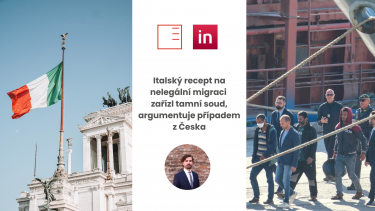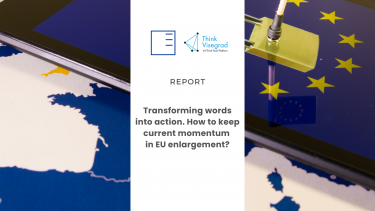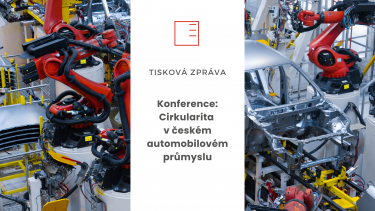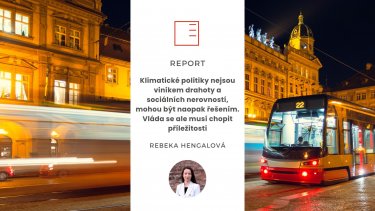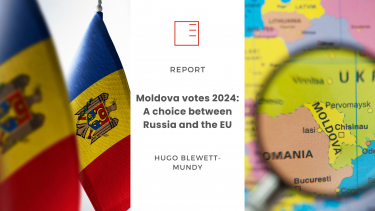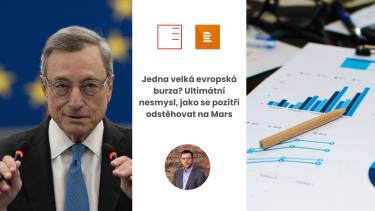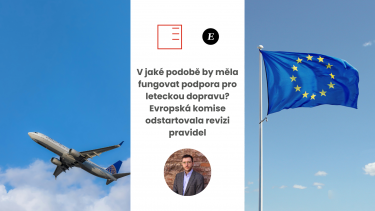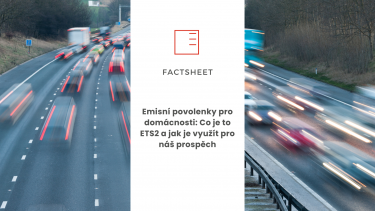Report | Battery circularity in the automotive industry as an opportunity for the Czech Republic
The report "Battery Circularity in the Automotive Industry as an Opportunity for the Czech Republic" addresses key issues in the development of the battery industry in the Czech Republic, with an emphasis on the circular economy, recycling and reuse of batteries. The study, which was produced in cooperation between EUROPEUM think tank and experts in the field of batteries and electromobility, shows that although the Czech market is still lagging behind in the development of battery production and recycling, its potential is huge - from raw material extraction to component production to battery recycling, which would significantly strengthen the resilience and environmental sustainability of the Czech economy.
Show more
Novinky.cz | Italian recipe for illegal migration cut by local court, argues Czech case
The Italian government, headed by Giorgia Meloni, is arguing with the courts over the transport of migrants detained in the Mediterranean Sea to Albania. Italy wants to process their asylum applications there. But a court in Rome ruled on Friday to return the first 12 refugees to the Apennine peninsula. It relied on an EU court ruling that has a Czech footprint. The Italian development complicates the efforts that the Czech government had hoped to make from the measure. Viktor Daněk, deputy director of EUROPEUM Institute, commented for Novinky.cz.
Show moreReport | Transforming words into action. How to keep current momentum in EU enlargement?
On the 3rd of October, Think Visegrad in Brussels, represented by the Brussels Office of EUROPEUM Institute for European Policy, organized a discussion titled "Transforming words into action. How to keep current momentum in EU enlargement?". Experts from think tanks, diplomatic missions and EU institutions dwelled into the renewed focus on EU enlargement, including the initiation of accession negotiations with Ukraine and Moldova, the formulation of new strategies and financial incentives for candidate states, and reinforced commitments from the EU. The key challenge moving forward is ensuring that this momentum is sustained and translated into concrete, transformative actions that deliver measurable results.
Show more
Press Release | Circular economy as a challenge for the Czech automotive industry
On Thursday, 17 October 2024, EUROPEUM Institute for European Policy in cooperation with the Institute for Circular Economy INCIEN organized a conference entitled Circularity in the Czech Automotive Industry: opportunities and obstacles, in which the Czech Battery Cluster was a partner. The conference was attended by representatives of the Czech automotive industry, state administration and research organizations. The press release from the conference and presentations of the organizations can be found in the text below.
Show more
Report | Climate policies are not the culprit of high costs and social inequalities, but can be the solution. But the government must seize the opportunity
This week, the Government will discuss in the third reading an amendment to the Emissions Trading Act, which also includes so-called household allowances. Under ETS2, these will charge for emissions from road transport and local heating - so they can help invest in infrastructure, renewable energy and support socially vulnerable groups. EUROPEUM Institute research fellow Rebeka Hengalová and others write.
Show moreČro Plus | Italian PM Meloni's recipe for migration policy raises questions
Just two days after Italy sent the first refugees to its two migration centers built in Albania, a court in Rome ruled that they must return to Italy. It concluded that the migrants from Bangladesh and Egypt did not come from safe countries, as the migration authorities claim, and therefore did not meet the conditions for transfer to Albania. Viktor Daněk, deputy director of EUROPEUM Institute, commented for ČRo Plus.
Show moreReport | Moldova votes 2024: A choice between Russia and the EU
Moldova stands at a critical juncture that will determine its position within Europe. In the elections on Sunday, the incumbent president Maia Sandu is seeking a second term and a positive result in the EU accession referendum to reaffirm her country’s path towards Europe. But the hybrid threat facing Moldova from Russia will not dissipate, particularly as next year’s pivotal parliamentary elections approach in the tiny former Soviet republic. Hugo Blewett-Mundy, a non-resident associate research fellow from EUROPEUM, analyses the current situation in Moldova and provides an outlook for the country in 2025.
Show moreČRo Plus | One big European stock exchange? The ultimate nonsense, like moving to Mars the day after tomorrow
The European Union is struggling with economic problems and is increasingly looking at the back of the US and in some respects China. According to a report recently commissioned by the European Commission from the former central banker and former Italian Prime Minister Mario Draghi, the solution lies, among other things, in greater European investment. And to ensure that there is enough money for this and that European investors do not go elsewhere, the European capital market should be strengthened. Filip Křenek, project coordinator and analyst at EUROPEUM Institute, commented for Český rozhlas Plus.
Show more
Ekonomický deník | How should support for air transport work? The European Commission has launched a review of the rules
The European Commission opens a debate on aviation support in the coming years. The new rules should start to apply after 2027. In particular, the guidelines are intended to minimize negative effects on competition and aim to preserve connectivity. Project coordinator and analyst at EUROPEUM Institute Filip Křenek commented for Ekonomický deník.
Show more
Factsheet | Emission allowances for households: What is ETS2 and how to use it to our advantage
The extension of the emissions trading system for local heating and road transport, the so-called ETS2, is due to come into effect in 2027. ETS2 now needs to be adopted into Czech legislation under the Emissions Trading Act. In this factsheet you will find basic facts and answers to questions that the Czech public often asks. Please also see the attached materials from the organisations that contributed to the factsheet.
Show more
Staroměstské náměstí 4/1
Prague 1 - Staré Město
110 00
tel.: +420 212 246 552
email: europeum@europeum.org
https://www.europeum.org

